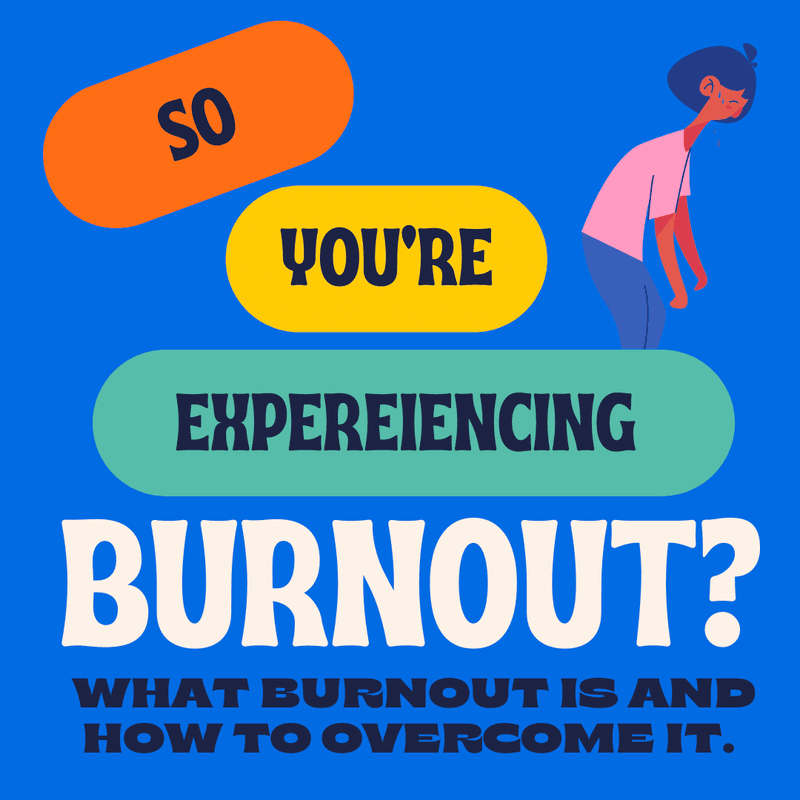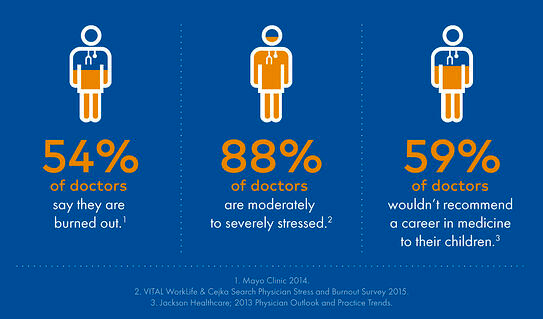Even if you love your job, it’s common to feel burnt out from time to time.
A study by the American Dental Association (ADA) reports that 86% of dentists claim to experience one or more of these stressful conditions in any given year. This equates to 60 days/year that dentists are significantly stressed and disengaged at work.

In 2022, the World Health Organization will embark on the development of evidence-based guidelines on mental well-being and will list burnout in the upcoming revision of the International Classification of Diseases as a syndrome conceptualized as resulting from chronic workplace stress that has not been successfully managed. It is not classified as a medical condition, however.

Burnout is defined as “a state of chronic stress that leads to physical and emotional exhaustion, cynicism, detachment and feelings of ineffectiveness and lack of accomplishment.”
Signs and Symptoms of Burnout
- Insomnia,
- Lack of energy,
- Lack of regular meals or interruption in eating patterns,
- Running late due to lack of concentration,
- Fatigue,
- Lightheadedness,
- Colds,
- Migraines,
- Muscle aches,
- Nausea,
- Difficulty breathing, and
- Feelings of not having a purpose in life.

There are two main reasons why dentists are more likely to experience burn-out issues at work:
1. Stressful working environment where we attempt to do more in less time.
2. Our inherent drive for perfection.
Changes at the job, team, or organizational level are often required.
TIPS TO AVOID BURN-OUT:
1. Take care of yourself
When you’re constantly busy it’s easy to forget to take care of your body in other ways. To reduce stress long term it’s important to incorporate a few habits into your daily routine that ensure you treat yourself well. Set aside time each day for yourself, it can be as little as fifteen minutes first thing in the morning or later in the evening. Use this time to meditate, fill in a journal, read a book, or just sit outside and take a break.
2. Manage your time
The most important strategy for time management is to prioritize. You must take the time to review the task you have at hand and determine what level of a priority this task takes — especially given the fact that your day is filled with treating patients. Do not plan too tightly and be realistic as to the time it would take for you to complete the task. It’s a good idea to schedule the unpleasant task early in the day.
3. Make your working environment more trustworthy
The key to a productive practice, where outstanding people come, stay, and perform productively, is to create and maintain a healthy working environment. Every business and every person will have problems in their lives. Face those problems and involve the team in the solutions.
5. Mindfulness meditation
Mindfulness is the new black. Mindfulness can help bring awareness to our day-to-day lives, identifying our stressors, and realizing when we are triggered can help us to be prepared ahead of time. Every one of you might have experienced that we catch the anxiety of our over-anxious patient. Our heart rate increases with his rise in blood pressure. Practice mindfulness in such situations. Remind yourself to relax and do not let your neurons set on fire.
6. Stay active
According to a recent study, individuals who exercised outdoors experienced greater feelings of revitalization, increased energy, and reduced tension, confusion, anger, and depression. When you are less tense, you will feel more energized and can tackle work issues without experiencing burn-out.
7. Avoid multi-tasking
Multi-tasking is not only responsible for increasing your burn-out but it can significantly lower your work productivity as well. It might give you a temporary illusion of being more efficient in your work but in reality, it makes you less focused and more over-whelmed. So section your day and allocate time slots to each work at a particular time and concentrate only on doing that.
8. Engage in something other than dentistry
You might think that hobbies are only for people who are living a peaceful, free life and you have no time for doing the thing you like. But on the contrary, hobbies are much more needed for a person with a full, busy, and stressful life. So whenever you are feeling overwhelmed by responsibility, take out a slice of stress-free time to sit and relax. It might be difficult to take out time in the beginning, but eventually, it will increase your work productivity.
9. Seek professional help when needed.
Never feel embarrassed to ask for help. As healthcare professionals, we can more easily interpret that we have now reached the end of the line. In the midst of such distress, you are not prepared to make better choices for yourself as well as your patients. Ask for help.
A few minutes each day are enough to maintain a healthy work-life balance. Understand your limits, cultivate a good hobby and develop a positive relationship with your colleague to make working an enjoyable experience altogether.
Need someone from the profession to talk to ?!
What would you say to a friend in your situation? Chances are, you’d offer empathy and kindness instead of telling them how utterly they failed.
Resetting yourself after burnout can be a lengthy process — but by choosing to address it, you’ve already taken the first step.




















Comments